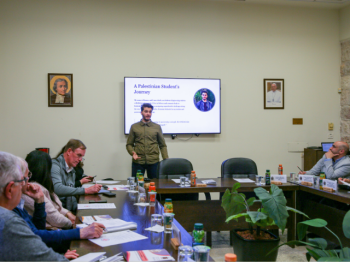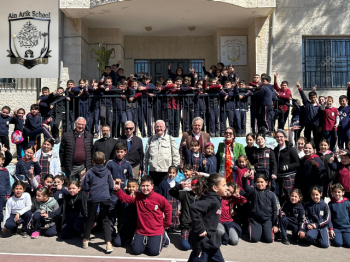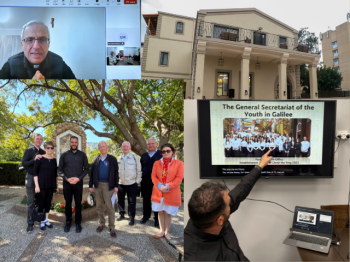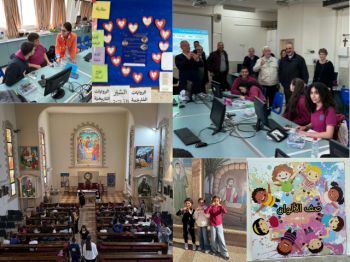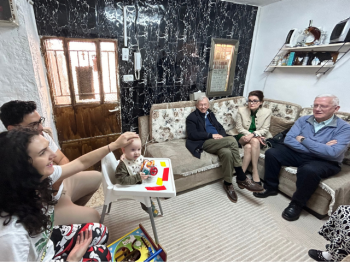“Education is the only resource we have, it is more important than food.”
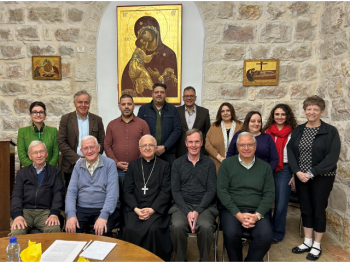
From 9 to 15 March, the three members of the Holy Land Commission of the Grand Magisterium - its President Bart McGettrick, as well as Tim Milner and Detlef Brümmer - undertook their half-yearly visit to the people concerned by the projects of the Latin Patriarchate of Jerusalem that the Order supports financially. They were accompanied by Donata Maria Krethlow-Benziger, Lieutenant for Switzerland and Liechtenstein, Donna Milner, and the Order's Communications Director in Rome, François Vayne.
During an initial meeting at the premises of the Latin Patriarchate with Sami El-Yousef, Chief Executive Officer, and his staff, it became clear that the current priorities, in a context marked by war, are job creation and education. Faced with the major crisis in Palestine which is having a terrible impact on tourism and pilgrimages, many Christians are choosing to emigrate when they can, while others depend heavily on the Patriarchate's assistance. The parishes of Palestine - in Taybeh, Ramallah, Jericho, etc. - write emails to the Patriarchate every day on behalf of families in increasing economic difficulty, in relation to the cost of schooling, the purchase of food or medicines. Jewish settlements are multiplying and the Arab towns are in a state of siege, encircled by dozens of checkpoints that prevent freedom of movement.




